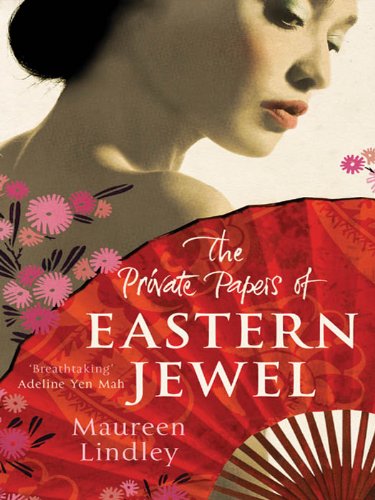The Private Papers of Eastern Jewel
“In 1914, at the age of eight years, I was caught spying on my father Prince Su as he made love to a fourteen-year-old girl.” This is the opening sentence of a remarkable novel: the fictionalized account of a real-life Chinese princess who became a Japanese spy in the 1930s and 40s and finally died by the sword in a Chinese prison camp.
Banished to Japan for her childish indiscretion, she finds herself trapped in the loveless household of Baron Kawashima, a powerful and ruthless man who rapes her repeatedly. Her response to this is not the expected one. She enjoys the rough sex and, far from seeing herself as a victim, she learns to use her beauty as a weapon. Throughout her life, sex will be a tool of her trade as well as an anodyne for the depressions and nightmares that haunt her. She also develops an early taste for opium, alcohol, and male dress—not wanting to be a man but to enjoy a man’s freedom and power. The ruling passion of her life, however, is Japan. She admires Japanese strength while she despises Chinese weakness. And her youthful predilection for spying will now be employed in Japan’s interest. The requirements of her masters will send her to Mongolia, Manchuria, Shanghai, and Peking—always living the high life and leaving behind a string of lovers. But her own heart is broken too, and her depressions become deeper. Her motto had always been: “We are all animals and to survive well should be each individual’s aim.” But when Japan is defeated and her own life is in ruins, one supremely selfless act redeems her.
It is Eastern Jewel’s self-knowledge and complete honesty that rescue her story from sordid tragedy. Lindley’s writing is subtle and sensitive, and every page shines a light into some dark corner of human nature.










